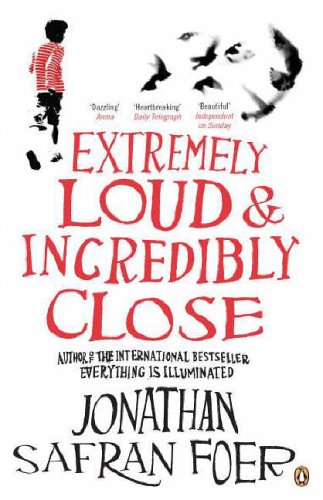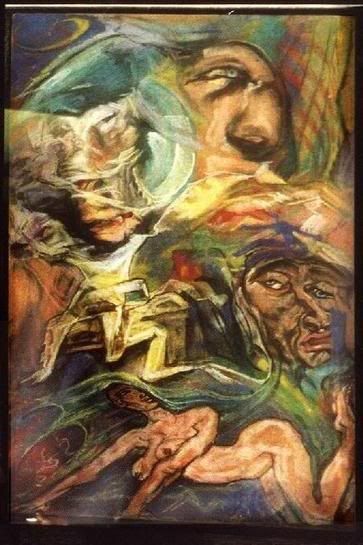
What about a teakettle? What if the spout opened and closed when the steam came out, so it would become a mouth, and it could whistle pretty melodies, or do Shakespeare, or just crack up with me? I could invent a teakettle that reads in Dad’s voice, so I could fall asleep, or maybe a set of kettles that sings the chorus of “Yellow Submarine,” which is a song by the Beatles, who I love, because entomology is one of my raisons d’être, which is a French expression that I know. Another good thing is that I could train my anus to talk when I farted. If I wanted to be extremely hilarious, I’d train it to say, “Wasn’t me!” every time I made an incredibly bad fart. And if I ever made an incredibly bad fart in the Hall of Mirrors, which is in Versailles, which is outside of Paris, which is in France, obviously, my anus would say, “Ce n’étais pas moi!”
What about little microphones? What if everyone swallowed them, and they played the sounds of our hearts through little speakers, which could be in the pouches of our overalls? When you skateboarded down the street at night you could hear everyone’s heartbeat, and they could hear yours, sort of like sonar. One weird thing is, I wonder if everyone’s hearts would start to beat at the same time, like how women who live together have their menstrual periods at the same time, which I know about, but don’t really want to know about. That would be so weird, except that the place in the hospital where babies are born would sound like a crystal chandelier in a houseboat, because the babies wouldn’t have had time to match up their heartbeats yet. And at the finish line at the end of the New York City Marathon it would sound like war.
(...)
My first jujitsu class was three and a half months ago. Self-defense was something that I was extremely curious about, for obvious reasons, and Mom thought it would be good for me to have a physical activity besides tambourining, so my first jujitsu class was three and a half months ago. There were fourteen kids in the class, and we all had on neat white robes. We practiced bowing, and then we were all sitting down Native American style, and then Sensei Mark asked me to go over to him. “Kick my privates,” he told me. That made me feel self-conscious. “Excusez-moi?” I told him. He spread his legs and told me, “I want you to kick my privates as hard as you can.” He put his hands at his sides, and took a breath in, and closed his eyes, and that’s how I knew that actually he meant business. “Jose,” I told him, and inside I was thinking, What the? He told me, “Go on guy. Destroy my privates.” “Destroy your privates?” With his eyes still closed he cracked up a lot and said, “You couldn’t destroy my privates if you tried. That’s what’s going on here. This is a demonstration of the well-trained body’s ability to absorb a direct blow. Now destroy my privates.” I told him, “I’m a pacifist,” and since most people my age don’t know what that means, I turned around and told the others, “I don’t think it’s right to destroy people’s privates. Ever.” Sensei Mark said, “Can I ask you something?” I turned back around and told him. “’Can I ask you something’ is asking me something.” He said, “Do you have dreams of becoming a jujutsu master?” “No,” I told him, even though I don’t have dreams of running the family jewelry business anymore. He said, “Do you want to know how a jujitsu student becomes a jujitsu master?” “I want to know everything,” I told him, but that isn’t true anymore either. He told me, “A jujitsu student becomes a jujitsu master by destroying his master’s privates.” I told him, “That’s fascinating.” My last jujitsu class was three and a half months ago.
(...)
Isn’t it so weird how the number of dead people is increasing even though the earth stays the same size, so that one day there isn’t going to be room to bury anyone anymore? (...) Anyway, the fascinating thing was that I read in National Geographic that there are more people alive now than have died in all of human history. In other words, if everyone wanted to play Hamlet at once, they couldn’t, because there aren’t enough skulls!
(...)
Actually, if limousines were extremely long, they wouldn’t need drivers. You could just get in the back seat, walk thorough the limousine, and then get out of the front seat, which would be where you wanted to go.
(...)
When you look up ‘hilarious’ in the dictionary, there’s a picture of you.
(...)
Mom said, “Honey,” and I said, “Oui,” and she said, “Did you give a copy of our apartment key to the mailman?” I thought it was so weird that she would mention that then, because it didn’t have to do with anything, but I thing she was looking for something to talk about that wasn’t the obvious thing. I said, “The mailperson is a mailwoman.” She nodded, but not exactly at me, and she asked if I’d given the mailwoman a key. I nodded yes, because I never used to lie to here before everything happened. I didn’t have a reason to. “Why did you do that?” she asked. So I told here, “Stan –” And she said, “Who?” And I said, “Stan, the doorman. Sometimes he runs around the corner for coffee, and I want to be sure all of my packages get to me, so I thought, if Alicia –” “Who?” “The mailwoman. If she had a key, she could leave things inside our door.” “But you can’t give a key to a stranger.” “We have lots of valuable things in our apartment.” “I know. We have really great things.” “Sometimes people who seem good end up being not as good as you might have hoped, you know? What if she had stolen your things?” “She wouldn’t.” “But what if?” “But she wouldn’t.” “Well, did she give you a key to her apartment?” She was obviously mad at me, but I didn’t know why. I hadn’t done anything wrong. Or if I had, I didn’t know what it was. And I definitely didn’t mean to do it. (...) “Maybe you could check with me next time, OK? “Don’t be mad at me,” I said, and I reached over Grandma and opened and closed the door’s lock a couple of times. “I’m not mad at you,” she said. “Not even a little?” “No.” “Do you still love me?” It didn’t seem like the perfect time to mention that I had already made copies of the key for the deliverer from Pizza Hut, and the UPS person, and also the nice guys from Greenpeace, so they could leave me articles on matanees and other animals that are going extinct when Stan is getting coffee. “I’ve never loved you more.”
(para ver posts relacionados basta clicarem na etiqueta 'Extremely Loud and Incredibly Close')



